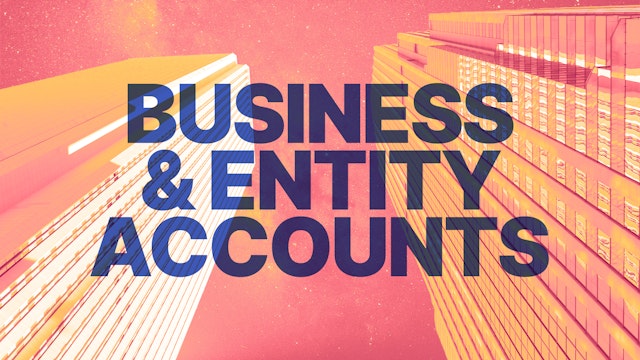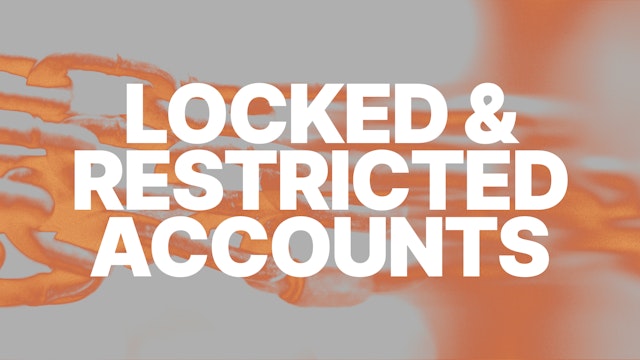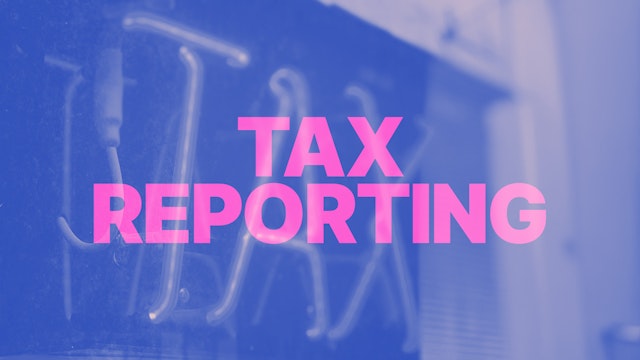Minimise Your Crypto Tax Burden: Expert Tips
Minimising your crypto tax burden is about knowing a few ins and outs. This article is a good starting point.
In this article...
- If you make an error while doing your taxes you could overpay
- Here are some things to know before you do your crypto taxes
- If in doubt, check with a tax professional.

Crypto investors and traders know that staying on top of tax stuff is a good way to keep the tax man from appearing in your life to ask polite questions. Here are some smart strategies you can implement to ensure you meet your tax obligations without overpaying.
Track your transactions from day one
The longer you delay tracking your crypto transactions, the more complicated it becomes. With frequent trades, staking rewards, DeFi activities, and NFT purchases, manually keeping tabs on everything can quickly build up. That’s where crypto accounting software comes in handy.
Tools like Crypto Tax Calculator, Koinly, CoinTracker, Koinx, and Coinpanda simplify the process by automatically importing transaction data from exchanges, wallets, and blockchains.
These platforms categorise your activity, calculate gains and losses, and generate reports tailored for tax purposes. By starting early, you’ll be fully prepared when tax season rolls around. No last-minute stress required!
Leverage the couple’s allowance
Did you know that both you and your spouse or partner are entitled to a £3,000 annual capital gains tax-free allowance? This presents an excellent opportunity to optimise your tax position.
By transferring a portion of your crypto assets to your partner, you can effectively double your combined allowance.
For example, if you have £6,000 worth of capital gains, splitting them equally between you and your partner means neither of you will exceed the threshold, potentially saving hundreds in taxes. Just ensure the transfer is done properly to qualify as a tax-free gift under HMRC rules.
Claim deductions if you’re a trader or business owner
If you’re actively trading crypto or running a crypto-related business, you may be eligible for significant deductions on your taxable income. Common deductible expenses include:
-Transaction fees: Costs incurred during trades, withdrawals, or deposits.
-Software subscriptions: Payments for tools like crypto tax calculators or portfolio trackers.
-Hardware expenses: Investments in mining rigs or other equipment used for crypto activities.
-Marketing and advertising: Expenses related to promoting your crypto projects or services.
-Home office costs: A percentage of your rent, utilities, or internet bill if you work from home.
Keep detailed records of all relevant expenses throughout the year to maximise your deductions and reduce your overall tax burden.
Disclose everything – transparency is key
A common misconception among crypto users is that Bitcoin and other cryptocurrencies offer complete anonymity. However, the reality is quite different. Blockchain technology makes every transaction transparent and traceable, and major exchanges share user data with tax authorities such as HMRC.
Attempting to hide your crypto activities can lead to fines and criminal charges. Instead, adopt a proactive approach by disclosing all your transactions accurately. Not only does this reduce the risk of legal issues, but it also demonstrates good faith to tax authorities.
Consult a crypto tax expert
Navigating the world of crypto taxation can feel daunting, especially given how rapidly regulations evolve. If you’re unsure about your obligations or want personalised advice, consulting a tax professional specialising in cryptocurrency is a wise move.
An expert can help you:
-Understand complex tax rules specific to crypto.
-Identify additional deductions or allowances you might have missed.
-Ensure your filings are accurate and compliant.
-Plan ahead to minimise future tax liabilities.
Stay ahead with CoinJar
At CoinJar, we understand that managing your crypto finances goes beyond just buying and selling. Our platform offers integration with popular tax tools, making it easier than ever to track your transactions and prepare for tax season.
Remember, smart planning and proper documentation are your best allies in navigating crypto taxation.

Suggested Articles

How to Set Up a CoinJar Account for Your Company in the United Kingdom
You can set up a CoinJar account for your company or business entity. Here are the steps you can follow to achieve this.Read more
Your CoinJar Account is Restricted: Why It Happens and How to Fix It
Resolution steps: A clear guide on how to verify your identity and contact support to regain access.Read more
Exporting Your Trading and Transaction History for Tax Purposes
A step-by-step guide for CoinJar customers: How to export your trading and transaction history for the tax year.Read moreBrowse by topic
Standard Risk Warning: The above article is not to be read as investment, legal or tax advice and it takes no account of particular personal or market circumstances; all readers should seek independent investment advice before investing in cryptocurrencies.
The article is provided for general information and educational purposes only, no responsibility or liability is accepted for any errors of fact or omission expressed therein. Past performance is not a reliable indicator of future results. We use third party banking, safekeeping and payment providers, and the failure of any of these providers could also lead to a loss of your assets.
We recommend you obtain financial advice before making a decision to use your credit card to purchase cryptoassets or to invest in cryptoassets.
Capital Gains Tax may be payable on profits.
CoinJar's digital currency exchange services are operated in the UK by CoinJar UK Limited (company number 8905988), registered by the Financial Conduct Authority as a Cryptoasset Exchange Provider and Custodian Wallet Provider in the United Kingdom under the Money Laundering, Terrorist Financing and Transfer of Funds (Information on the Payer) Regulations 2017, as amended (Firm Reference No. 928767).
In the UK, it's legal to buy, hold, and trade crypto, however cryptocurrency is not regulated in the UK. It's vital to understand that once your money is in the crypto ecosystem, there are no rules to protect it, unlike with regular investments.
You should not expect to be protected if something goes wrong. So, if you make any crypto-related investments, you're unlikely to have recourse to the Financial Services Compensation Scheme (FSCS) or the Financial Ombudsman Service (FOS) if something goes wrong.
The performance of most cryptocurrency can be highly volatile, with their value dropping as quickly as it can rise. Past performance is not an indication of future results.
Remember: Don't invest unless you're prepared to lose all the money you invest. This is a high-risk investment and you should not expect to be protected if something goes wrong. Take 2 mins to learn more.
UK residents are required to complete an assessment to show they understand the risks associated with what crypto/investment they are about to buy, in accordance with local legislation. Additionally, they must wait for a 24-hour "cooling off" period, before their account is active, due to local regulations. If you use a credit card to buy cryptocurrency, you would be putting borrowed money at a risk of loss.
We recommend you obtain financial advice before making a decision to use your credit card to purchase cryptoassets or to invest in cryptoassets.
Your information is handled in accordance with CoinJar’s Privacy Policy.
Cryptoassets traded on CoinJar UK Limited are largely unregulated in the UK, and you are unable to access the Financial Service Compensation Scheme or the Financial Ombudsman Service.
We use third party banking, safekeeping and payment providers, and the failure of any of these providers could also lead to a loss of your assets.
We recommend you obtain financial advice before making a decision to use your credit card to purchase cryptoassets or to invest in cryptoassets. Capital Gains Tax may be payable on profits.
CoinJar’s digital currency exchange services are operated in the UK by CoinJar UK Limited (company number 8905988), registered by the Financial Conduct Authority as a Cryptoasset Exchange Provider and Custodian Wallet Provider in the United Kingdom under the Money Laundering, Terrorist Financing and Transfer of Funds (Information on the Payer) Regulations 2017, as amended (Firm Reference No. 928767).
Apple Pay and Apple Watch are trademarks of Apple Inc. Google Pay is a trademark of Google LLC.
This site is protected by reCAPTCHA and the Google Privacy Policy and Terms of Service apply.

